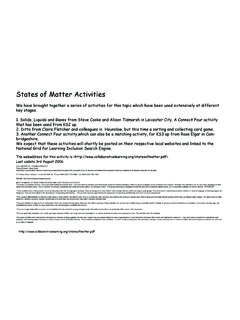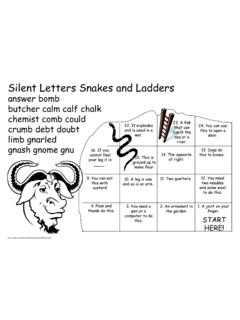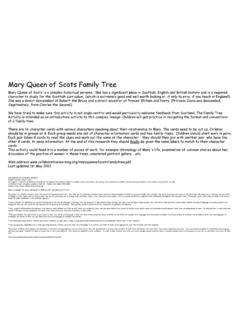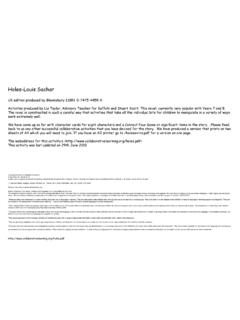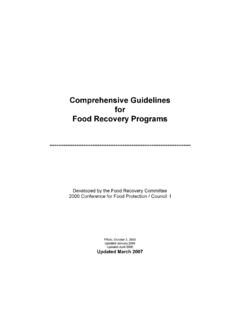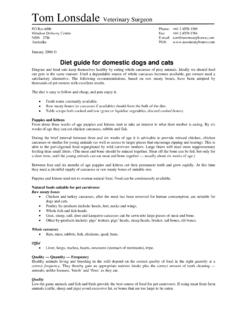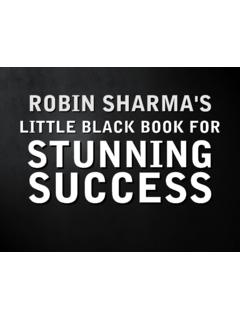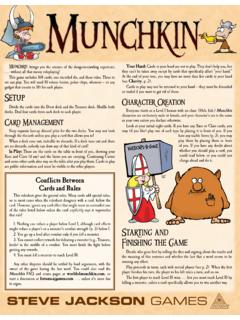Transcription of Thomas Hardy Short Stories - Collaborative Learning
1 Thomas Hardy Short Stories The Withered Arm Tony Kytes Understanding Vocabulary conjurer (a male witch). incubus (evil spirit which visits people in their sleep). drawn (white and strained). Your name is Rhoda Brook. You work as a milkmaid. You are unhappy and feel Clarifying Cultural Differences rejected. You are the mother of a young boy. You were once very good friends with Farmer Lodge, Everyone in the village knew a so you are now very jealous of lot about everyone else. his new wife, Gertrude. You are visited in your dreams by an evil spirit. You feel very guilty about The rich landowners had servants the events that follow. who did all the cooking and cleaning. When people were hanged. the local people treated it as a holiday and came to watch. There were no cars. People travelled in large wooden carts pulled by horses.
2 Thomas Hardy Short Stories This is a collection of material developed for The Withered Arm and Tony Kytes Archdeceiver by originally devised by Zoe Livingstone, Kathy Coombs, Jenny Clarke, Jane Harris and Christine Child from schools in Leicester and Loughborough in 1998. All the materials which also include pictures and chapter summaries culminated in a storyboard activity which was designed to be constructed before the story was read. Like many of our literature activities they were designed to make students curious and enthusiastic about approaching the story, rather than pick up the pieces, when students had already found the Stories difficult or unapproachable. All these strategies can be and have been adapted to other Stories , and we would encourage you to share any work you produce with other members of our network. This activity was last partly revised and updated 18th March 2017.
3 The webaddress for this activity is: < >. Collaborative Learning PROJECT. Project Director: Stuart Scott Supporting a cooperative network of teaching professionals throughout the European Union to develop and disseminate accessible teaching materials in all subject areas and for all ages. 17, Barford Street, Islington, London N1 0QB UK Phone: 0044 (0)20 7226 8885. Website: BRIEF SUMMARY OF BASIC PRINCIPLES BEHIND OUR TEACHING ACTIVITIES: The project is a teacher network, and a non-profit making educational trust. Our main aim is to develop and disseminate classroom tested examples of effective group strategies across all phases and subjects. We hope they will inspire you to use similar strate- gies in other topics and curriculum areas. We run teacher workshops, swapshops and conferences throughout the European Union. The project publishes a catalogue of activities plus lists in selected subject areas, and a newsletter available by post or internet: PAPERCLIP'.
4 *These activities were influenced by current thinking about the role of language in Learning . They are designed to help children learn through talk and active Learning in small groups. They work best in mixed classes where children in need of language or Learning support are integrated. They are well suited for the development of speaking and listening . They provide teachers oppor- tunities for assessment of speaking and listening and other formative assessment. *They support differentiation by placing a high value on what children can offer to each other on a particular topic, and also give children the chance to respect each other's views and formulate shared opinions which they can disseminate to peers. By helping them to take ideas and abstract concepts, discuss, paraphrase and move them about physically, they help to develop thinking skills.
5 *They give children the opportunity to participate in their own words and language in their own time without pressure. Many activi- ties can be tried out in mother tongue and afterwards in English. A growing number of activities are available in more than one language, not translated, but mixed, so that you may need more than one language to complete the activity. *They encourage study skills in context, and should therefore be used with a range of appropriate information books which are preferably within reach in the classroom. *They are generally adaptable over a wide age range because children can bring their own knowledge to an activity and refer to books at an appropriate level. The activities work like catalysts. *All project activities were planned and developed by teachers working together, and the main reason they are disseminated is to encourage teachers to work effectively with each other inside and outside the classroom.
6 They have made it possible for main- stream and language and Learning support teachers to share an equal role in curriculum delivery. They should be adapted to local conditions. In order to help us keep pace with curriculum changes, please send any new or revised activities back to the project, so that we can add them to our lists of materials. Thomas Hardy Short Stories Notes for teachers 1. Rural life at the beginning of the nineteenth century. This was a way of converting what would normally be a class discussion into group work with action. Students would be answering the question: Would you like to return to the beginning of the nineteenth century? . Each group (four or five students) would have a large sheet of paper divided thus: Reasons why it would be a Reasons why it would NOT be good idea to return. a good idea to return.
7 They could first write down some of their own assumptions and then take the statements, and decide where they would fit on the chart. Some statements are ambiguous and would be a good starter for a subsequent class discussion. 2. Character cards. The instructions are fairly self explanatory, and we have used this activity for a lot of work in English and humanities. It is a good idea to print the sets of cards in different colours since this will give you an ideal way to organise groups in ways you want to by dealing them out to the class judiciously. 3. Difficult and dialect word and phrases quiz/questioning game. We have adapted this activity to a variety of Stories with difficult bits in. The Tony Kytes commentary can be used in a number of ways. It can be cut up for groups and they can reorder them in the right sequence.
8 It can be used as a prediction exercise: commentary given out in order bit by bit and groups make predictions on what comes next. The Withered Arm commentary is organised in sections. The three sentences in each section are not in the correct order. We gave different groups different sections to decide on the order and then read out to the rest of the class. If you have a smaller class groups can have more than one section. 5. Storyboard materials. Pictures/quotes and information from the other activities can all be used by children to construct a version of the story before they hear/read the original. Thomas Hardy Short Stories - Statements about the early years of the nineteenth century. Children who worked on farms did When people were hanged. the not have to go to school. local people treated it as a holiday and came to watch.
9 A few people were rich, but most There were no cars. People were very poor. travelled in large wooden carts pulled by horses. People in country had big parties Children as young as seven and and festivals with lots of music and eight used to work on the farms. dancing. Most people used to work outside People did not have toilets in their in the fresh air. houses, but had sheds at the bottom of the garden. Many people never travelled Everyone in the village knew a lot further than the nearest town in about everyone else. their whole lives. People working on farms ate mostly The rich landowners had servants bread, potatoes and vegetables who did all the cooking and from their gardens. cleaning. People believed all all kinds of The local pub was a very important strange superstitions and magic. part of village life. People could get everything they Farm workers were paid very little wanted in their own village.
10 Money. People used natural herbs and Every village was supposed to have strange medicines and even magic its own witch, who put curses on to try to cure illnesses. the people who lived there. People working on farms sometimes The law was very strict and people had to walk miles to get to work. were killed for stealing. Although there were a few People who were rich were not newspapers, people were more supposed to be friends with people likely to spread news by talking to who were poor. each other. Thomas Hardy Short Stories : The Withered Arm Character Cards or Two Minute Autobiography Everyone in the class takes or is given a character card. Everyone should read the information on the card two or three times. You do not have to remember the card word for word, but have a good idea about the information on it. Put the card in your pocket or out of sight, and then find someone else in the room with the same coloured card as you.




